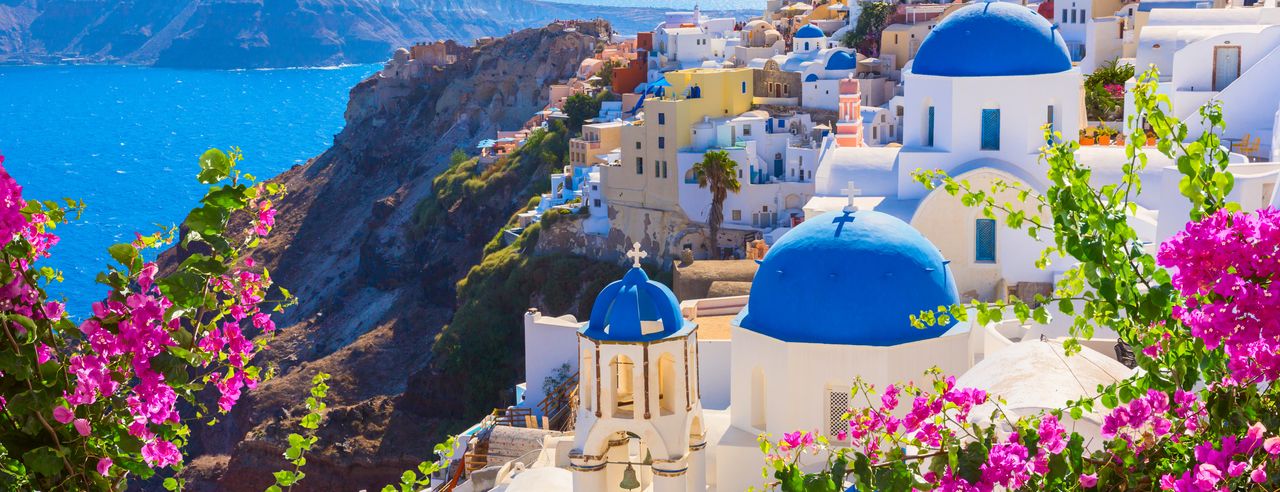Visiting a spa in Greece means pure relaxation and recreation. The beautiful landscape, the clear air and the sound of the sea are ideal for a break from stressful everyday life. If you choose a spa vacation in Greece, you will benefit from a unique pampering program. At the same time, you can discover the beauty of this Mediterranean region. It doesn't matter whether you spend the break on the mainland or on one of the magnificent islands.

Spa in Greece
Our customers love us
The Mediterranean Sea calls and invites you to Greece
The most popular hotels for Spa in Greece
Explore the dream destination Greece on a spa holiday
Greece is one of the destinations in Europe that enjoys particular popularity among European holidaymakers. Islands like Santorini, Rhodes or Crete belong to the destinations of longing as well as the mainland with its impressive ancient sites. Which other country could be better suited for a spa vacation? You can plan a spa break all year round, because even in the winter months the climate is pleasantly mild compared to the UK. Find out about the options for wellness in Greece and decide on a resort that suits your individual preferences.
What makes a spa hotel in Greece special
A spa vacation in Greece gives you the opportunity to spend a unique pampering program with a break in one of the most beautiful vacation regions in Europe. Decide individually whether your spa hotel should have 4 stars or 5 stars. The providers meet your individual requirements, so you can enjoy a high recovery factor and return to your everyday life in Germany relaxed and refreshed.
The accommodations differ in their orientation and in what they offer. You can stay in a classic hotel or stay in a bungalow. Many spa hotels are located directly by the sea, so you can combine your vacation with long walks on the beach or a daily swim in the clear salty water. Thanks to the mild temperatures, swimming is possible from spring to autumn.
Many of the hotels or resorts have accessible rooms, which are spacious and comfortable and leave nothing to be desired. The beautiful rooms are either equipped with a own balcony or a terrace and open you the view of the lushly planted gardens or directly on the turquoise blue water.
Culinary you will be spoiled with organic and regional dishes. If desired, vegetarian, lactose-free or gluten-free menus can also be selected. You can choose from the usual catering options, full or half board or breakfast.
Let yourself be pampered, focus on your health and well-being and enjoy the comfort of the spa area. Here you can forget everyday life with a massage or really switch off with soothing thermal treatments.
The best spa treatments in Greece
In most spa hotels, classic spa treatments form the basis of the broad program. You use a hotel's own swimming pool and can do some laps in the morning or in the evening and thus do something for your fitness. A wide range of massages and treatments, a gym, a sauna, warm and cold water pools, and relaxation zones are standard at spa hotels. Depending on the hotel's location and orientation, other options are added.
Thermal treatments require healing springs located near the spa hotel. In Greece, there are numerous resorts that offer these treatments. They are appropriately excellent. The thermal water usually has a temperature that ranges from 36 to 38 degrees Celsius. A bath in the tub promotes blood circulation, lowers blood pressure and the relaxation of muscles.
Beauty treatments enjoy a special popularity. Masks, mud packs, but also massages promote the blood circulation of the skin and have a positive effect on the complexion. With an anti-aging treatment, you will then radiate with the sun and enjoy your rejuvenated skin appearance.
The most beautiful islands for a spa vacation in Greece
The island is known for its lordly beaches, for urige villages and the long history. Already 1,300 years before our era, an advanced civilization lived on the island under King Minos. The Palace of Knossos testifies to this and can be visited by you during your spa break in Greece.
Euboea with its capital Chalkida is connected by bridges with the mainland. The popular vacation island offers dreamy beaches, a charming landscape and the Greek hospitality. A perfect place to spend a wellness holiday in Greece and experience pure relaxation.
FAQ - Our tips for your perfect spa holiday in Greece
You can book offers for a spa vacation in Greece with us from $70.
You can travel Greece all year round. It is most beautiful between May and June and in September and October.
If you love beautiful landscapes and the sea and at the same time are interested in the origins of our culture, Greece is the perfect destination for you. Here, families, couples and solo travelers all feel equally comfortable.
We recommend a stay of at least one week. This way you can get to know the country and enjoy beneficial wellness treatments.
If you book early, you will enjoy interesting discounts and get a place in the hotel you have chosen for yourself. In addition, we always offer attractive bargains.
The most beautiful sights can be found with the Acropolis in Athens and the ancient sites on the Peloponnese.
Bathing, snorkeling, hiking and cycling are activities that enjoy particular popularity in Greece.
Look for the location by the sea or in the mountains, this depends on your individual preferences. The spa hotel should offer the comfort and treatments you want to take advantage of.
